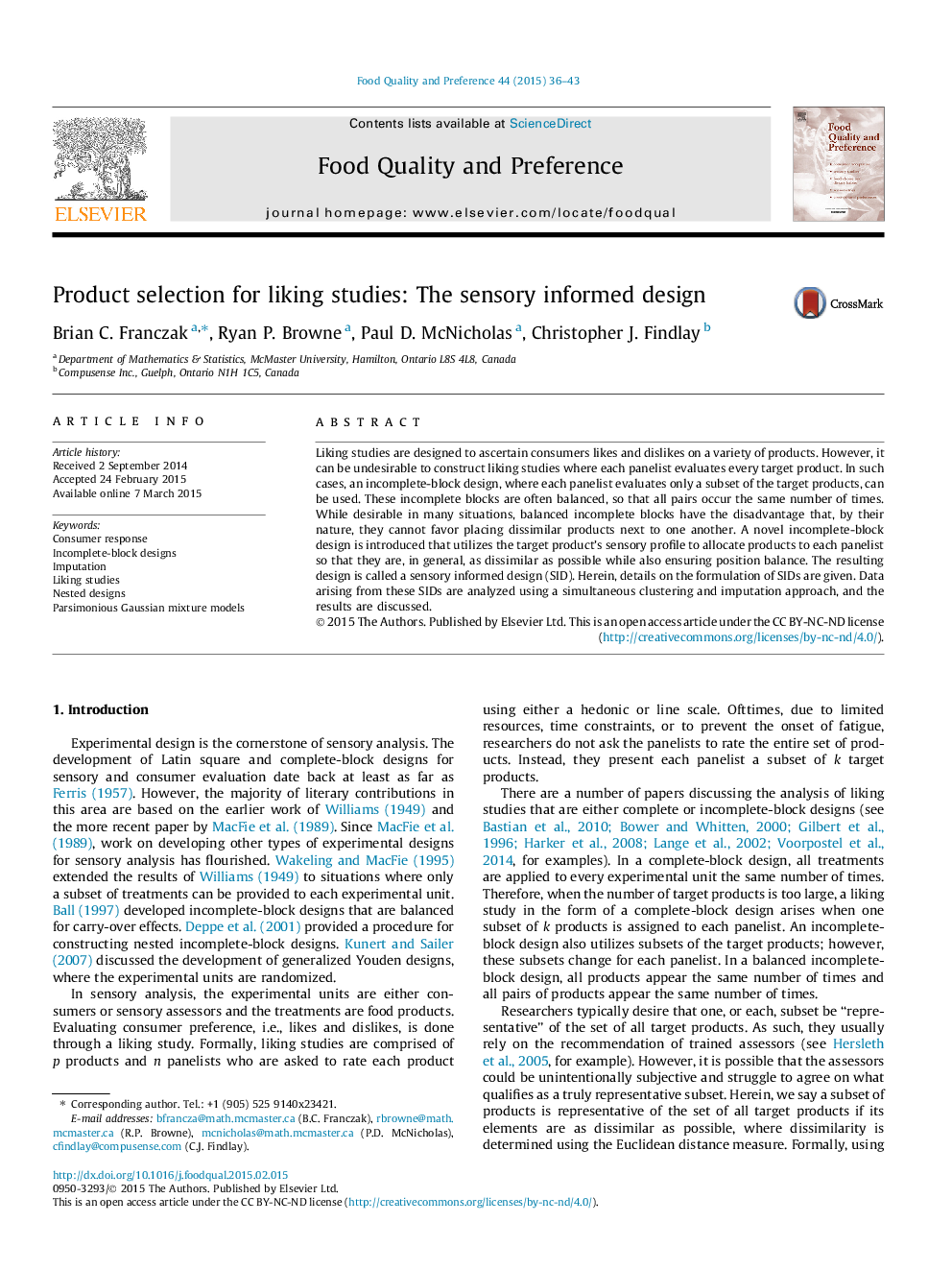| Article ID | Journal | Published Year | Pages | File Type |
|---|---|---|---|---|
| 6261328 | Food Quality and Preference | 2015 | 8 Pages |
â¢We formulate a position-balanced incomplete-block design that allocates dissimilar products to panelists for evaluation.â¢The resulting sensory informed designs (SIDs) contain missing values.â¢We analyze two SIDs using a simultaneous model-based clustering and imputation procedure.â¢This procedure identifies polarizing differences in consumer preference for a number of products.
Liking studies are designed to ascertain consumers likes and dislikes on a variety of products. However, it can be undesirable to construct liking studies where each panelist evaluates every target product. In such cases, an incomplete-block design, where each panelist evaluates only a subset of the target products, can be used. These incomplete blocks are often balanced, so that all pairs occur the same number of times. While desirable in many situations, balanced incomplete blocks have the disadvantage that, by their nature, they cannot favor placing dissimilar products next to one another. A novel incomplete-block design is introduced that utilizes the target product's sensory profile to allocate products to each panelist so that they are, in general, as dissimilar as possible while also ensuring position balance. The resulting design is called a sensory informed design (SID). Herein, details on the formulation of SIDs are given. Data arising from these SIDs are analyzed using a simultaneous clustering and imputation approach, and the results are discussed.
